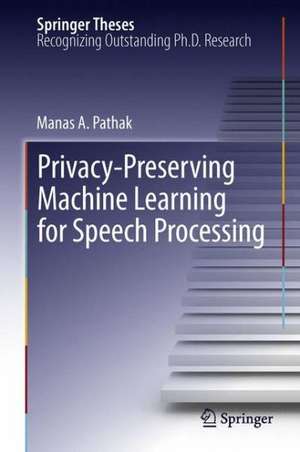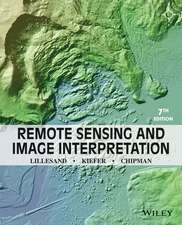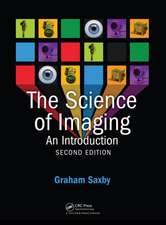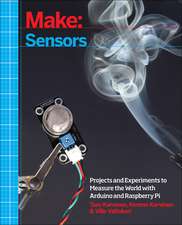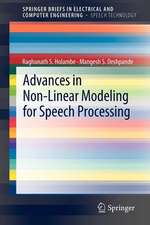Privacy-Preserving Machine Learning for Speech Processing: Springer Theses
Autor Manas A. Pathaken Limba Engleză Hardback – 25 oct 2012
| Toate formatele și edițiile | Preț | Express |
|---|---|---|
| Paperback (1) | 633.68 lei 6-8 săpt. | |
| Springer – 9 noi 2014 | 633.68 lei 6-8 săpt. | |
| Hardback (1) | 638.43 lei 6-8 săpt. | |
| Springer – 25 oct 2012 | 638.43 lei 6-8 săpt. |
Din seria Springer Theses
- 18%
 Preț: 997.88 lei
Preț: 997.88 lei -
 Preț: 389.88 lei
Preț: 389.88 lei - 15%
 Preț: 646.94 lei
Preț: 646.94 lei - 18%
 Preț: 943.43 lei
Preț: 943.43 lei -
 Preț: 399.29 lei
Preț: 399.29 lei - 18%
 Preț: 944.99 lei
Preț: 944.99 lei - 15%
 Preț: 636.80 lei
Preț: 636.80 lei - 18%
 Preț: 941.05 lei
Preț: 941.05 lei - 15%
 Preț: 643.16 lei
Preț: 643.16 lei - 15%
 Preț: 642.68 lei
Preț: 642.68 lei - 18%
 Preț: 1103.62 lei
Preț: 1103.62 lei - 20%
 Preț: 558.82 lei
Preț: 558.82 lei - 18%
 Preț: 1112.30 lei
Preț: 1112.30 lei - 18%
 Preț: 944.19 lei
Preț: 944.19 lei - 18%
 Preț: 1109.92 lei
Preț: 1109.92 lei - 18%
 Preț: 1217.27 lei
Preț: 1217.27 lei - 15%
 Preț: 640.06 lei
Preț: 640.06 lei - 15%
 Preț: 636.45 lei
Preț: 636.45 lei - 15%
 Preț: 640.06 lei
Preț: 640.06 lei - 15%
 Preț: 640.88 lei
Preț: 640.88 lei -
 Preț: 389.70 lei
Preț: 389.70 lei - 20%
 Preț: 563.89 lei
Preț: 563.89 lei -
 Preț: 393.35 lei
Preț: 393.35 lei - 15%
 Preț: 637.93 lei
Preț: 637.93 lei - 15%
 Preț: 641.85 lei
Preț: 641.85 lei - 18%
 Preț: 1225.94 lei
Preț: 1225.94 lei - 20%
 Preț: 551.36 lei
Preț: 551.36 lei - 18%
 Preț: 1229.10 lei
Preț: 1229.10 lei - 15%
 Preț: 639.25 lei
Preț: 639.25 lei - 18%
 Preț: 999.45 lei
Preț: 999.45 lei - 15%
 Preț: 640.06 lei
Preț: 640.06 lei - 18%
 Preț: 1220.45 lei
Preț: 1220.45 lei - 18%
 Preț: 1116.26 lei
Preț: 1116.26 lei - 18%
 Preț: 1110.72 lei
Preț: 1110.72 lei - 18%
 Preț: 1000.87 lei
Preț: 1000.87 lei - 18%
 Preț: 891.17 lei
Preț: 891.17 lei - 15%
 Preț: 640.06 lei
Preț: 640.06 lei - 5%
 Preț: 1154.07 lei
Preț: 1154.07 lei - 15%
 Preț: 635.96 lei
Preț: 635.96 lei - 15%
 Preț: 640.88 lei
Preț: 640.88 lei -
 Preț: 387.20 lei
Preț: 387.20 lei - 18%
 Preț: 1109.92 lei
Preț: 1109.92 lei -
 Preț: 385.25 lei
Preț: 385.25 lei -
 Preț: 385.25 lei
Preț: 385.25 lei - 18%
 Preț: 1112.30 lei
Preț: 1112.30 lei - 18%
 Preț: 999.45 lei
Preț: 999.45 lei -
 Preț: 386.99 lei
Preț: 386.99 lei - 15%
 Preț: 637.13 lei
Preț: 637.13 lei - 20%
 Preț: 554.20 lei
Preț: 554.20 lei - 20%
 Preț: 555.57 lei
Preț: 555.57 lei
Preț: 638.43 lei
Preț vechi: 751.10 lei
-15% Nou
Puncte Express: 958
Preț estimativ în valută:
122.16€ • 127.55$ • 101.11£
122.16€ • 127.55$ • 101.11£
Carte tipărită la comandă
Livrare economică 05-19 aprilie
Preluare comenzi: 021 569.72.76
Specificații
ISBN-13: 9781461446385
ISBN-10: 1461446384
Pagini: 160
Ilustrații: XVIII, 142 p.
Dimensiuni: 155 x 235 x 13 mm
Greutate: 0.36 kg
Ediția:2013
Editura: Springer
Colecția Springer
Seria Springer Theses
Locul publicării:New York, NY, United States
ISBN-10: 1461446384
Pagini: 160
Ilustrații: XVIII, 142 p.
Dimensiuni: 155 x 235 x 13 mm
Greutate: 0.36 kg
Ediția:2013
Editura: Springer
Colecția Springer
Seria Springer Theses
Locul publicării:New York, NY, United States
Public țintă
ResearchCuprins
Thesis Overview.- Speech Processing Background.- Privacy Background.- Overview of Speaker Verification with Privacy.- Privacy-Preserving Speaker Verification Using Gaussian Mixture Models.- Privacy-Preserving Speaker Verification as String Comparison.- Overview of Speaker Indentification with Privacy.- Privacy-Preserving Speaker Identification Using Gausian Mixture Models.- Privacy-Preserving Speaker Identification as String Comparison.- Overview of Speech Recognition with Privacy.- Privacy-Preserving Isolated-Word Recognition.- Thesis Conclusion.- Future Work.- Differentially Private Gaussian Mixture Models.
Notă biografică
Dr. Manas A. Pathak received the BTech degree in computer science from Visvesvaraya National Institute of Technology, Nagpur, India, in 2006, and the MS and PhD degrees from the Language Technologies Institute at Carnegie Mellon University (CMU) in 2009 and 2012 respectively. He is currently working as a research scientist at Adchemy, Inc. His research interests include intersection of data privacy, machine learning, speech processing.
Textul de pe ultima copertă
This thesis discusses the privacy issues in speech-based applications, including biometric authentication, surveillance, and external speech processing services. Manas A. Pathak presents solutions for privacy-preserving speech processing applications such as speaker verification, speaker identification, and speech recognition.
The thesis introduces tools from cryptography and machine learning and current techniques for improving the efficiency and scalability of the presented solutions, as well as experiments with prototype implementations of the solutions for execution time and accuracy on standardized speech datasets. Using the framework proposed may make it possible for a surveillance agency to listen for a known terrorist, without being able to hear conversation from non-targeted, innocent civilians.
The thesis introduces tools from cryptography and machine learning and current techniques for improving the efficiency and scalability of the presented solutions, as well as experiments with prototype implementations of the solutions for execution time and accuracy on standardized speech datasets. Using the framework proposed may make it possible for a surveillance agency to listen for a known terrorist, without being able to hear conversation from non-targeted, innocent civilians.
Caracteristici
Nominated as outstanding PhD thesis from Carnegie Mellon University Develops an efficient computational framework, making it possible to create speech processing applications such as voice biometrics, mining and speech recognition that are privacy-preserving Presents a technology solution, which would allow a user to utilize an IVR system without fear that the system could learn undesired information, such as gender or nationality, or be able to record and edit voice Includes supplementary material: sn.pub/extras
